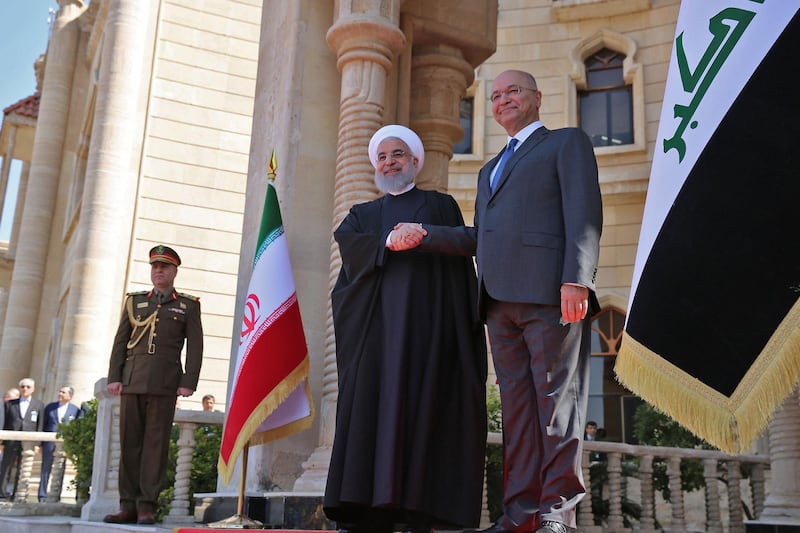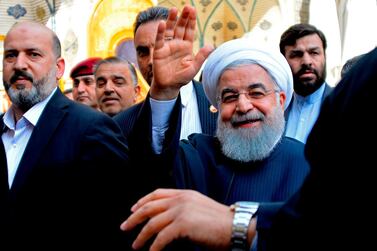Iran and Iraq have decided to restore the 1975 Algiers Agreement as part of a drive to improve relations and to deal with border disputes along the Shatt Al Arab waterway.
The agreement encompasses plans to agree on the demarcation of the border, ownership of oilfields and resolve disputes over the Shatt Al-Arab, according to a joint statement released from the prime minister's office in Iraq on the second day of meetings with Iranian President Hassan Rouhani.
The agreement, commonly known as the Algiers Accord, was signed in 1975 and aimed to settle Iran and Iraq's border disputes. It served as a road map towards improving relations between the two countries.
But the treaty was cancelled by Iraq in 1980 by former Iraqi President Saddam Hussein shortly after the 1979 Islamic Revolution in Iran made Ruhollah Khomeini the leader of the new republic. Five days after Iraq abolished the agreement in September 17 1980, Baghdad launched a full-scale invasion of Iran that lead to an eight-year war.
Now, more than 40 years since its signing, the neighbouring states declared their intention this week to implement the agreement.
The two countries will look to the document as a means to restore relations at a time when Baghdad is under pressure to limit its relations with sanctions-struck Iran.
The joint statement promised joint action to tackle the financing of terrorism and dredging of the Shatt Al Arab.
The agreement also made pledges to make tourism, pilgrimage and commerce visas free to citizens of both countries starting from April 1.
President Rouhani arrived in Iraq on Monday for a three-day visit. He met with his Iraqi counterpart, Barham Salih, Prime Minister Adel Abdul Mahdi and other political and religious leaders.
Mr Rouhani met with Ali Al Sistani, one of the Shiite religious authorities in Najaf on the last day of his visit.







